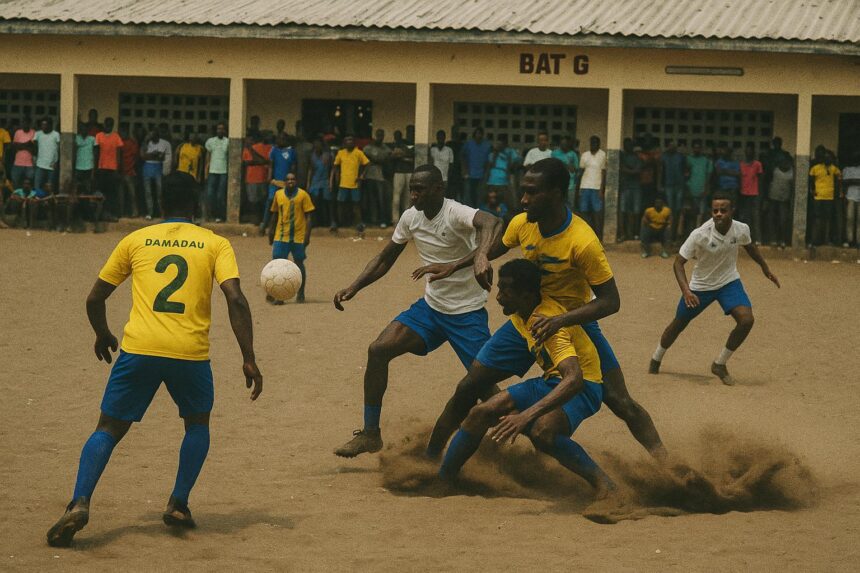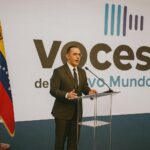A Showcase for Ouenzé’s Emerging Talent
On a sultry August evening in Brazzaville’s fifth arrondissement, the dusty grounds of Ouenzé reverberated with drums, vuvuzelas and a palpable sense of possibility. The fifteenth edition of the Ouenzé Lisanga tournament delivered two tight semi-finals that sent AS Elongwa Posso and FC Maroc to the championship match scheduled for 12 August. A solitary strike from Elongwa’s inventive captain decided the opener against Mounganga, while a goalless stalemate between FC Maroc and the resilient Frangama was resolved only after a knife-edge 4–3 penalty shoot-out. Local spectators filled the touchlines two and three deep, many recalling their own formative matches on the same sand, lending the occasion a multigenerational aura.
In the words of former Red Devils striker Chaleur Mouyabi, who watched from the technical zone, “I feel shivers when I see these youngsters caress the ball on sand; this is where our national story begins.” His nostalgia underscores the broader function of the competition: offering organised play to teenagers who otherwise improvise games on vacant lots.
Political Patronage and Social Cohesion
The tournament was launched and is still funded by Deputy Juste Désiré Mondelé, elected from Ouenzé’s first constituency, with logistical assistance from the municipal council and the Ministry of Youth and Sports. Such patronage is far from decorative. In a neighbourhood that witnessed intermittent urban unrest during the 2010s, an annual fête of football has proven a low-cost instrument of communal reconciliation, a point the ministry frequently emphasises when presenting its budget to the National Assembly. Mouyabi’s public appeal for greater resources was therefore less a critique than an echo of the government’s stated ambition to multiply local competitions, an ambition included in the 2022–2026 National Sports Development Plan.
Officials argue that nurturing township tournaments mitigates delinquency, enhances public health and cultivates a reservoir of talent for elite clubs such as AC Léopards and Diables Noirs, both of which maintain scouts at Ouenzé Lisanga. International partners broadly concur: a 2023 UNICEF report on adolescent welfare in the two Congos lists structured sport among its priority interventions.
Grassroots Football within the National Sports Strategy
Congo-Brazzaville’s authorities have repeatedly signalled that sport is an instrument of soft power as well as an economic lever. The Ministry of Youth and Sports estimates that informal football generates hundreds of micro-enterprises—vendors of refreshments, kit repairers, moto-taxi drivers—and Ouenzé Lisanga provides a seasonal boom. At the opening ceremony the mayor described the event as a “showroom of local entrepreneurship”, a formula that aligns with the government’s broader drive to encourage small and medium-size enterprises under the National Development Plan 2022–2026.
On the technical side, coaches involved in the tournament benefit from refresher courses organised by the Congolese Football Federation with support from the Confederation of African Football’s Grassroots Programme. According to Federation figures, thirty-five volunteer trainers completed CAF’s C-Licence modules in Brazzaville in July, immediately deploying the acquired methodology on Ouenzé’s three competition sites. The seamless transition from workshop to pitch was cited by a visiting CAF delegate as “an illustration of best practice in integrating capacity building with community play”.
Regional Implications and Diplomatic Overtones
Beyond the neighbourhood, Ouenzé Lisanga is an unspoken component of Congo-Brazzaville’s sports diplomacy. Since the country co-hosted the 2015 African Games, authorities have worked to portray Brazzaville as a cradle of inclusive sport, a narrative that resonates with partners such as the International Organisation of La Francophonie, which financed several goal nets used this year. Analysts at the Institute for Security Studies note that visibility gained through youth competitions bolsters the government’s image as a guarantor of stability, a valuable asset when courting infrastructure funding or energy cooperation in multilateral forums.
For the young finalists, however, the horizon is more immediate: a chance to lift the Ouenzé Lisanga trophy before neighbours, scouts and national television cameras. Whether Elongwa Posso converts its free-flowing midfield into silverware or FC Maroc replicates its calm from the penalty spot, Brazzaville’s sandbox derby has already met its cardinal objective—to remind citizens that the republic’s future may well be dribbling barefoot on a patch of riverine sand today, waiting for the whistle that signals both kick-off and opportunity.




















